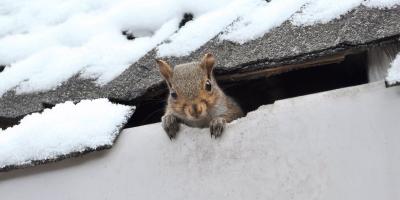Keep Ants Off Your Property this Summer

As spring comes marching into New England once again this year, the season’s minions -- the single most common pest in the northeast -- will be marching right along with it. We’re talking, of course, about everyone’s least favorite picnic guests: Ants.
While some pests are more of the drifter type -- sliding in and out of New England homes & businesses seemingly on a whim, ants are what we call “repetitive pests. That’s because they often retreat from -- then return back to -- the same locations year after year, summer after summer. (Their activity around here actually seems to peak in mid-May, but that’s summer enough for us.)
If you’ve ever found yourself the target of such typical yearly ant invasions -- and you tried to handle the problem yourself using over-the-counter bug sprays, bait stations and the like -- you may have noticed your efforts were rather… futile.
Why so Many Ants? Blame it on the Rain
The reason store-bought ant treatments fail so often is because ant migrations are rarely (if ever) affected by pesticides. Rather, ants go where the wind blows -- sort of. It’s actually more about the rain.
Weather, more than any other element, is what influences ant movement (although wind isn’t exactly one of the main drivers -- precipitation and temperature are). Of course, part of that complex process involves us humans and our own seasonal behavior.
Especially in the northeast, where all but the “doggiest” days of summer can often be pleasant, we like to open our windows and take in the fresh, natural air. A seasonal warm breeze, however, isn’t the only element of nature to blow through our homes & businesses -- ants are particularly adept opportunists who’ll scout every last rip, cut and tear in older screens, which is why it’s so vital to inspect your window fixtures yearly.
When it Comes to Ants, We Don’t Believe in ‘Can’t’
In addition to securing your home’s perimeter against future invading ant forces, another approach that’ll minimize potential ant problems this year is to make your property less appealing to ants in general. They’re not breaking in for a social call -- they’re after the same three basic resources every animal requires: food, shelter and water.
Although there’s not much you can do to reduce the amount of shelter available between your four walls, there’s still plenty you can do to keep ants out off of your property. First off, clean up spills and messes in the kitchen. Second, eliminate damp spots, rotten wood or standing water. Finally, check your garden for aphids, which produce a sweet substance called “honeydew” that ants can’t get enough of. Since ants will almost always be coming in from the immediate outdoor perimeter, it’s important to reduce nearby attractants such as these, especially when your front door is only a few feet away.
Even if you do win a few battles against invading ants, sometimes the invading forces just have you outnumbered. That’s when it’s time to call in the heavy artillery. Not only will we deploy cutting-edge techniques to help try and keep ants out, we’ve got nearly 100 years of combat under our belts if they do breach our defenses.
For the tens of thousands of customers already on of our several preventative pest maintenance plans, there’s no need to wait around until ants invade: we’re on the scene long before they are.



